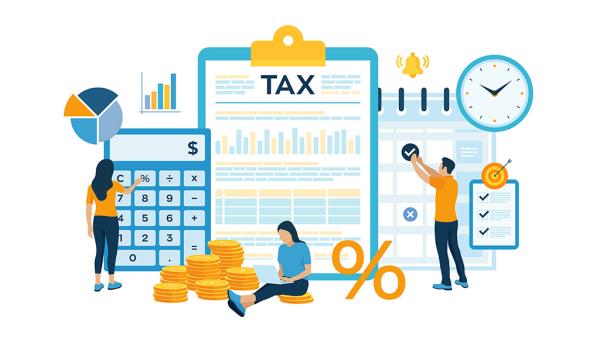As we prepare for the 2024 tax season, the IRS is also updating regulations for tax forms and filing requirements. One such regulation establishes a new threshold for electronic filing of certain returns. This change has implications for employers and taxpayers alike, as it affects the way tax-related information is submitted to the IRS.
In this blog, we discuss the details of this amendment, its significance, and how it may impact employers and taxpayers in the years to come.
Context for the amendment
On February 23, 2023, the Treasury Department issued Treasury Decision 9972, amending Regulations Section 301.6011-2. This amendment specifically targets the threshold for electronic filing of information returns—once a business exceeds a certain number of returns, the business is required to file the returns electronically.
The new threshold is now 10 returns, which is no small change. What’s more, the new threshold goes into effect next year, which means that tax year 2023 will fall under the new rules—some of which are required to be filed by January 31, 2024.
Why the change?
The amendment serves several important purposes:
- Enhanced Efficiency: Electronic filing is often more efficient and less prone to errors than paper-based filing. Lowering the threshold encourages employers to utilize electronic filing, thus contributing to smoother tax processing.
- Cost Reduction: Electronic filing can be more cost-effective for employers in the long run, eliminating the need for paper forms, postage, and manual data entry.
- Reduced Environmental Impact: Encouraging electronic filing aligns with efforts to reduce paper waste and promote environmentally friendly practices.
- Timely Filing: The amendment ensures that information returns for tax year 2023, specifically Forms W-2, are filed electronically by January 31, 2024, allowing for timely and accurate processing.
With these priorities in mind, the amendment’s purposes become more clear.
Forms affected by Treasury Decision 9972
The returns that fall under this new threshold include the following:
- Forms W-2
- Form 1099-NEC
- Form 1099-MISC
- Form 1042-S
- The Form 1094 series
- Form 1095-B
- Form 1095-C
- Form 1097-BTC
- Form 1098
- Form 1098-C
- Form 1098-E
- Form 1098-Q
- Form 1098-T
- The Form 1099 series
- Form 3921
- Form 3922
- The Form 5498 series
- Form 8027
- Form W-2G
Employers must add together the number of these information returns and the number of Forms W-2 they need to file in a calendar year. If the total equals or exceeds 10, they are required to file all forms electronically.
However, it’s important to note that corrected returns are treated separately and are not included in the calculation of the threshold mentioned above. Employers must adhere to specific rules when correcting Forms W-2c, which are detailed on the IRS website.
e-Filing solutions for small businesses: Meet Drake Accounting
These new regulations don’t have to break the bank for small businesses who are facing the e-filing threshold for the first time in 2024.
With Drake Accounting, you get unlimited e-filing, clients, installs per site, payroll, and form generation. Use different modes to process different types of paperwork in the Payroll Module and Accounting Module. At time of writing, 51 state forms can be e-filed from within the software.
Download a free trial version to see how Drake Accounting can help you provide professional accounting services.
Join the Taxing Subjects Newsletter to stay on top of tax news
As IRS regulations continue to evolve, staying informed about these changes is crucial for employers and taxpayers. The recent amendment, which lowers the threshold for electronic filing of certain information returns, promotes efficiency, cost-effectiveness, and environmental responsibility.
Employers must be prepared to adapt to these changes and ensure compliance with the new threshold starting in 2024. By understanding these modifications and acting accordingly, employers can contribute to a smoother tax process and a greener future.
Source: New electronic filing requirements for Forms W-2 | Internal Revenue Service (irs.gov)
